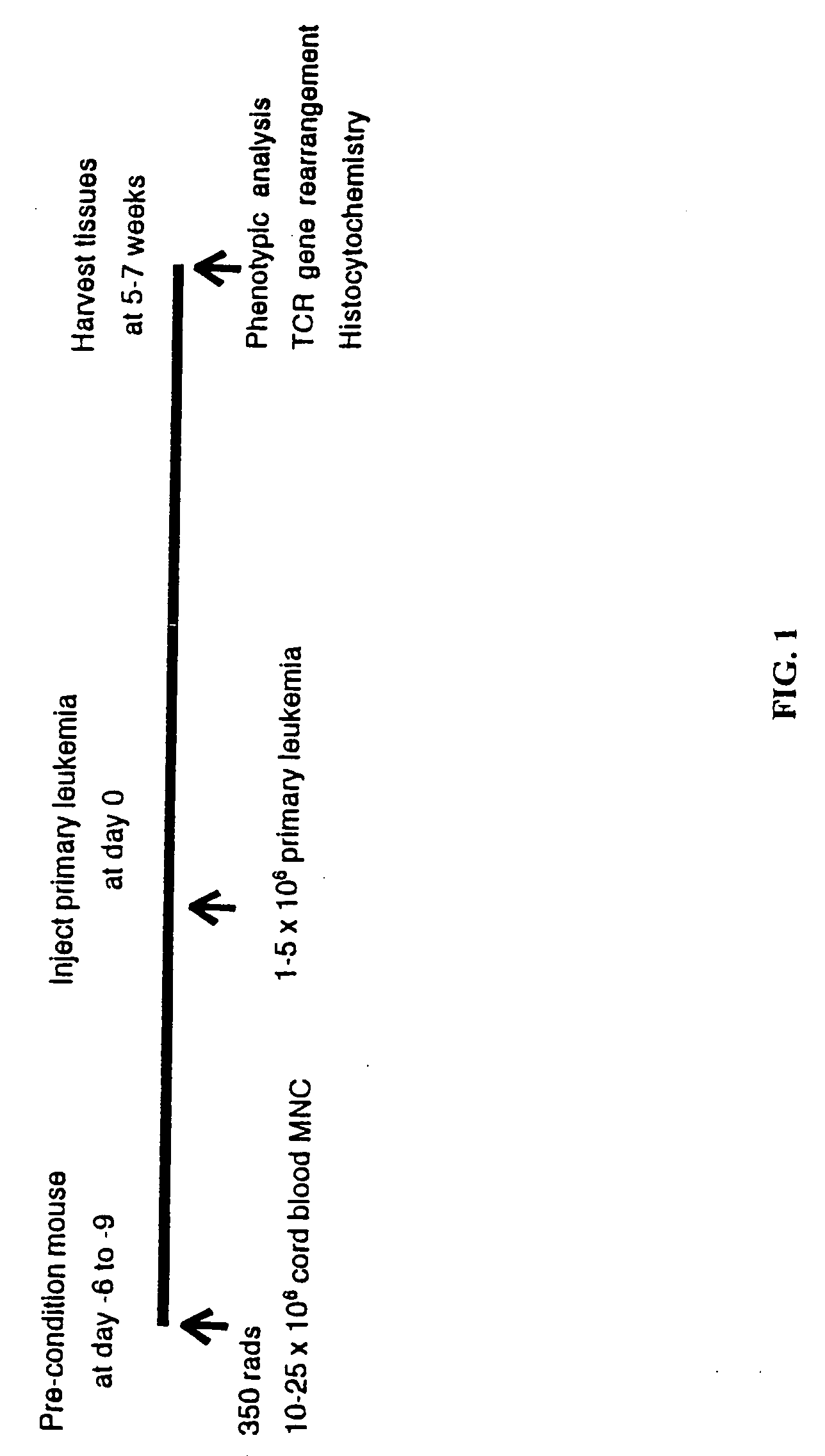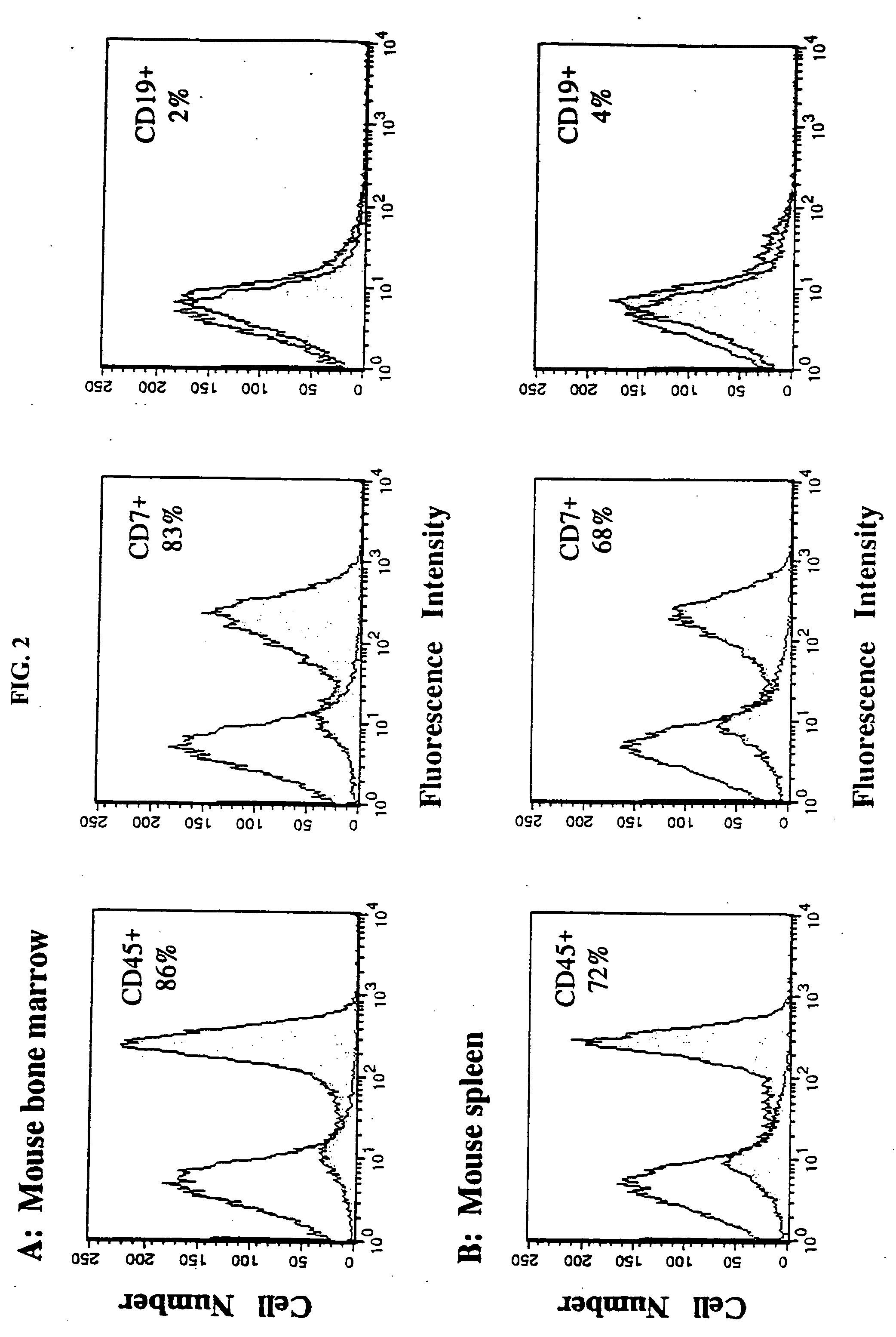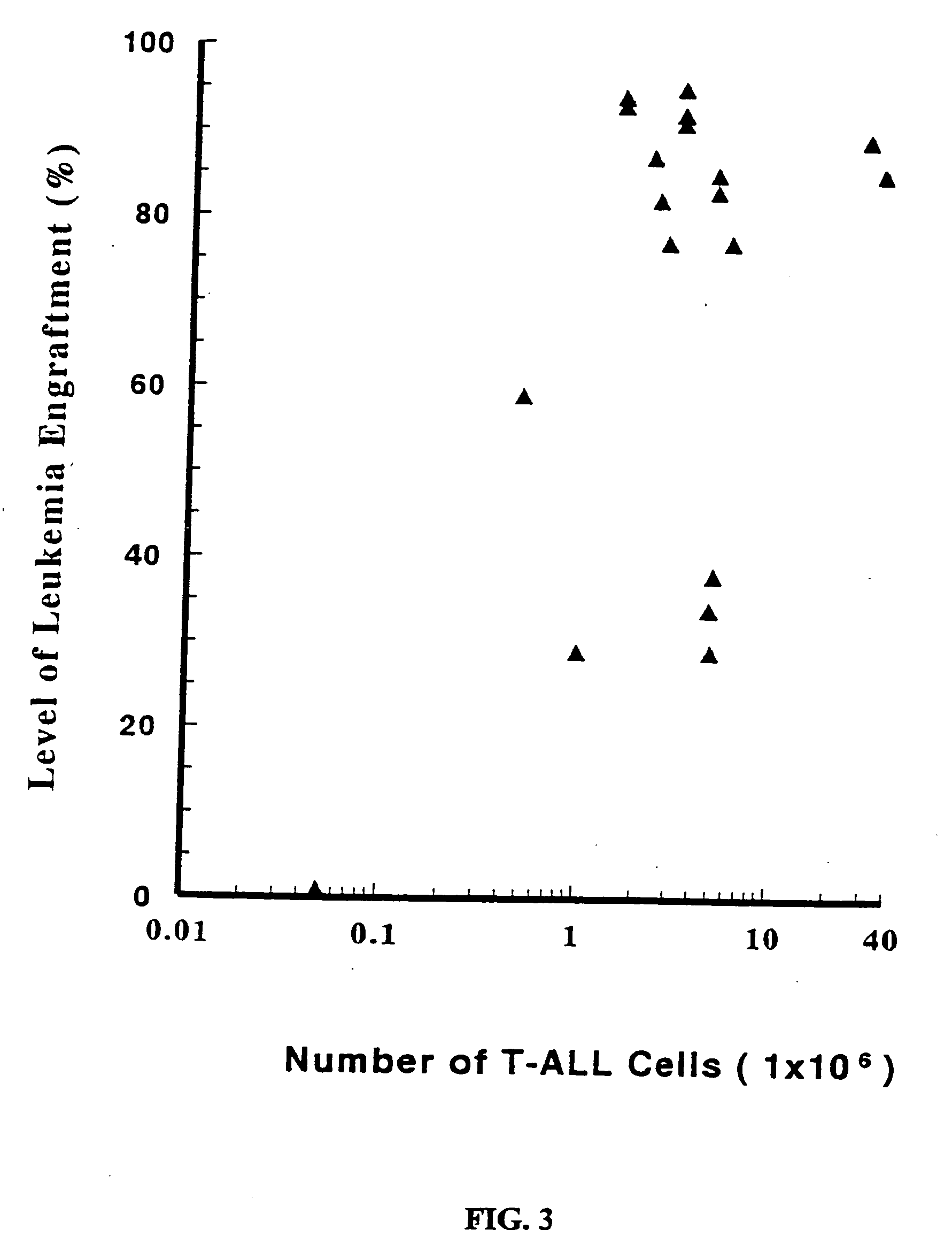In vivo animal model of human leukemia
a human leukemia and animal model technology, applied in the field of leukemia, can solve the problems of impeded study of the disease development, difficulty in maintaining primary cultures of leukemia cells from patients, etc., and achieve the effects of increasing the number of primary leukemia cells injected, increasing the level of primary cell engraftment, and increasing the number of pre-conditioning cells
- Summary
- Abstract
- Description
- Claims
- Application Information
AI Technical Summary
Benefits of technology
Problems solved by technology
Method used
Image
Examples
Embodiment Construction
[0019] The present invention provides models of leukemia including an in vivo animal model of human leukemia. A preferred animal for use with the in vivo model is a rodent and, more particularly, a mouse. The rodent is immunodeficient. That is, the animal lacks the normal capacity to respond to an insult with an immunological response. Numerous immunodeficient rodent models are well known in the art. An especially preferred immunodeficient animal is a severe combined immunodeficient mouse (scid mouse). Means for obtaining such scid mice are well known in the art. An especially preferred scid mouse for use in the present invention is a Nonobese Diabetic×severe combined immunodeficient (NOD / scid) mouse.
[0020] The immunodeficient animal contains engrafted human leukemia cells. As used herein, the term “engrafted” and its grammatical equivalents means transplanted cells that have migrated throughout the organism to particular tissues. Engrafted leukemia cells can be found throughout th...
PUM
 Login to View More
Login to View More Abstract
Description
Claims
Application Information
 Login to View More
Login to View More - R&D
- Intellectual Property
- Life Sciences
- Materials
- Tech Scout
- Unparalleled Data Quality
- Higher Quality Content
- 60% Fewer Hallucinations
Browse by: Latest US Patents, China's latest patents, Technical Efficacy Thesaurus, Application Domain, Technology Topic, Popular Technical Reports.
© 2025 PatSnap. All rights reserved.Legal|Privacy policy|Modern Slavery Act Transparency Statement|Sitemap|About US| Contact US: help@patsnap.com



